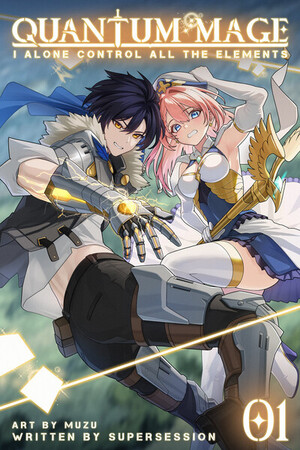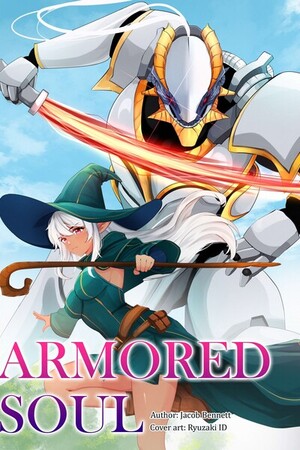Chapter 66:
Chapter 57 – The Hollowing Sky (Part 3)
The Archivist of Lost Eras
The field was a sea of broken things. Roots burst forth like ribs from the drowned giant, glass-skinned and studded with the refractions of lives they had sucked dry. Yusuf navigated among them on legs pieced together from yellowed pages and abandoned charts; each step scraped against the edge of the man he used to be. Ash and ink flavored the air. With every breath pulling a strand from his memory: the rhythm of a lullaby, the slant of a teacher's jawline, the incline of his father's penmanship. He continued walking because to stand still was to surrender the rest.
Ahead of him a column of root as wide as a house shone, its epidermis trapping whole streets within it like insects in amber. Faces flashed over its surface. Yusuf propelled the Codex forward. Ink panted over its pages, and fibers flung themselves at the air, glinting like tendon. They twined in a net that struck the root's side, and it sang like air in a fractured bell. Names ran along the fiber—marginalia, dates, gentle messages he'd once written as anchors—and for a moment the net glowed with good light. The root winced with a feeling that might have been sorrow.
There was no victory. One of the marginal comments slipped off the paper during the mid-shake and evaporated in the air like a cloud of smoke. The ledger insisted on coin; he had tendered it.
A root cage. Glass fibers coiled around him, panes forming mirrors of time: a huckster's stall he had fixed, a peck on a skinned knee, Rae's face in the half-light. The panes radiated first and steadying light warmed his flesh. Edges went black then and the pictures bent inward to contours until mere faint impressions remained. The panes flashed like dying stars.
Hold to the lines, the expressionless child said, its voice just by his ear but its face still inscrutable. "Choose which of them are significant.".
Choice had been a knife. To select a memory rooted would be to have another slip. He could cry and yield, or count and move ahead. He wrote Rae's laughter with sharp lines—pitch, breathing, beat—securing it to a strand and securing the mesh. Rae's window was aglow, radiating and warm. But the warmth sustained the Tree and another window went dark to sustain it.
Chopped roots with knife-sharp slashes. He hacked back at the shard Rae had given him. Each hack sent names and voices soaring like glass. He swore when yet another intimate note—a scribble in his father's shorthand about a shipment—was pulled from his mind and away. No love affair here, but only figures: victory outside, loss inside.
A massive root stood on hind legs to deliver a blow. Yusuf braced, fumed with fatigue, and forced a name onto the Codex he could hardly hold—the scent of his mother's stew—and the page received it like a prayer. The root smashed the weave with the force of a falling building. The blast sent him crashing to the ground and for an instant he thought all the pieces of his life would be a scattering of ash.
Rae's voice snagged him, a ghostly real thread: "Yusuf, remember why." The shard he wore at his belt vibrated. The words laced his backbone with steel. He stood.
The Tree replied with a salvo. The battlefield was a merry-go-round of images: plaza, library, quay, the boy's bedroom where a father never came. Each image tugged on different welts in him. He tied what he could. One name stuck; another disentangled. The Codex became full of ink and weight, its leaves heavy as the roots' arms.
At the center the ground split and an open gash ran like a throat. Light poured up, sterile and cold. Sap-veins wrapped up close and bearing faces—those whom he'd saved and those he hadn't; both drifted along beside him, eyes closed as if sleeping. Their lips formed shapes that he could not hear and yet he felt them as accusation or prayer.
The child splashed into the cleft and for an instant its mask trembled. A litany of names leaked out—not distinct but overlayed like a broken choir—and Yusuf felt them weigh in his chest. Remembrances extended in three places at once: the quiet of the archives at the close of day, a photograph of a boy selling bootlaces, Rae's hand holding aloft a sword. The simultaneity knocked him back to almost drop the Codex.
He forced the book into the light. Ink splattered and curled with sap; threads wrapped around the nearest roots and tugged. The root shrieked—a tearing sound of pages—and a torrent of rubbish surged. The Codex captured some names, trapped them, folded them up secure bright. He had saved them; they were small islands of existence in an ocean of loss.
For a shred he tasted victory. Then the Tree attacked and the roots slapped like beasts. The Codex warmed and the ledger inside it pulsed with the tally. He tallied softly, a running prayer of faces and words—what is left, what is owed. He realized with a jolt that each rescue consumed a portion out of him. The more he rescued of the world, the more there was to forget why.
Savage clarity struck like a knife: preservation meant sacrifice. The knowledge might have destroyed him, but Rae's voice strung taut once more, a line he could cling to. "Go on," she urged, and he did.
He dove back into the lattice, fingers raw and throbbing head. The roots wrapped closer around him, wrinkled and disputatious. The light of the Codex flashed and he inscribed another small shining salvation in the skin of the Tree, and hurled it out, a spike of protest in the middle of the void.
The cold nibbled at his fingers as he clutched the bunched names. He could feel time dripping like water between hands; each second he spent saving another life was pulling air out of his own lungs. There was a mix of sweat and sap on his forehead; the world around him criticized with an age older than memory. The child looked at him with that unthinkable, mask-like concentration, and for a moment Yusuf saw creases of the child's past—or what had made the child—flickering beneath the mask: shards of other archivists, night-time decisions, fingers that shook to turn the pages. He couldn't help but wonder if every person who took this route ended up the same: altered, less.




Please sign in to leave a comment.